'It will be difficult to challenge Hindutva anymore as the police will have the power to charge you as anti-national.'
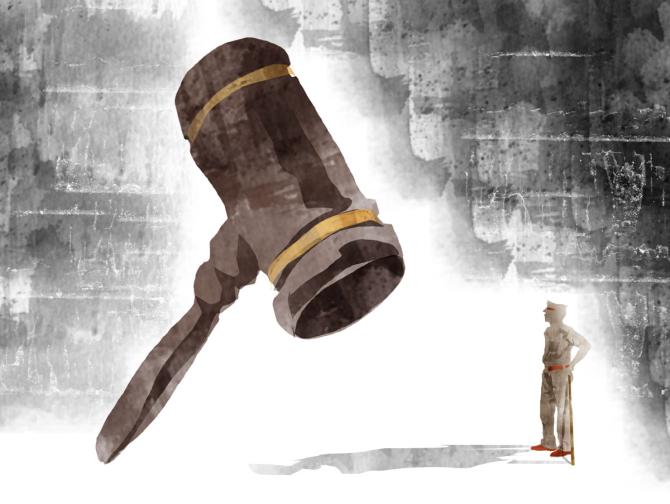
It was in December 2023 that Parliament passed the three new criminal laws -- the Bharatiya Nyay Sanhita, Bharatiya Nyaya Sanhita, Bharatiya Nagarik Suraksha Sanhita, and Bharatiya Sakshya Adhiniyam -- after suspending 146 Opposition MPs.
No wonder the Opposition says, these laws were 'forcibly bulldozed' into the system'.
On the 1st of July 2024, the the 163-year-old Indian Penal Code (IPC) was replaced by the new laws.
But legal experts and Opposition leaders are not happy with the new laws as they think they are 'anti-democratic'.
According to former additional solicitor general Indira Jaising, the new criminal laws will pave way for a legal and judicial mess.
Rediff.com's Shobha Warrier asked G Mohan Gopal, former director of the National Judicial Academy, and ex-director (vice-chancellor) of the National Law School of India, about the new criminal laws.
"The new laws will create an expanded climate of fear in society that innocent people will be arbitrarily branded as terrorists, anti-nationals and criminals and subjected to selective arrest, detention, prosecution and punishment," says G Mohan Gopal.
Was it really necessary to replace the colonial criminal laws with the Bharatiya criminal laws?
Of course, a genuine, substantive replacement of British colonial criminal laws always was, and still continues to be, a long unfulfilled necessity.
This is because British colonial law was a blot on democracy.
Its central political goal was to use criminal law as a tool for suppressing democracy and maintaining an authoritarian dictatorship over India.
Nearly forty percent of the IPC protects the State and its officials. Some 10% protects the existing social order.
Notwithstanding the claims made by the government that the new laws repeal and replace the colonial law, the fact of the matter is that rather than repeal and replace the colonial criminal law, Bharatiya criminal laws keep the essence of the colonial law alive as their core goal is the same: To use criminal law as a tool for suppressing democracy and maintaining an authoritarian dictatorship over India.
opposition leaders describe these new criminal laws as anti-democratic, pernicious in nature and draconian in their implementation.
Do you agree with this description?
Bharatiya criminal justice attacks democracy in four ways.
First, Bharatiya laws greatly widens the use of criminal law as a tool to stifle the practice of democracy through an over-broad criminalisation of non-violent dissent and opposition against the government (Union and state), ruling parties and social and economic forces that support them by giving the ruling parties broad power to engage in selective prosecution against opponents, thinkers and civil society.
The Bharatiya laws conflate the ruling party of the day with the Republic/nation thus eliminating any space for questioning or opposing the government of the day.
Second, the new laws will create an expanded climate of fear in society that innocent people will be arbitrarily branded as terrorists, anti-nationals and criminals and subjected to selective arrest, detention, prosecution and punishment.
The Sangh Parivar ideology has been elevated as the ideology of the nation.
These new criminal laws are the very important foundation stone for the Hindu Rashtra.
Their enforcement is the shilanyas of the Hindu Rashtra.
Therefore, if any speech against Hindutva will be at risk of being considered anti-national.
It will be difficult to challenge Hindutva anymore as the police will have the power to charge you as anti-national.
Third, the Bharatiya laws regularise extraordinary powers of arrest, conviction and imprisonment which should normally be available only in legitimate states of emergency provided in the Constitution.
This weakens the distinction between a normal state of the nation and a state of emergency and makes a state of emergency the new normal.
As a result of these laws, therefore, India can no longer be considered a functioning democracy in which the people enjoy the full extent of civil liberties.
Fourth, the Bharatiya criminal laws strip away several of our Constitutional rights.
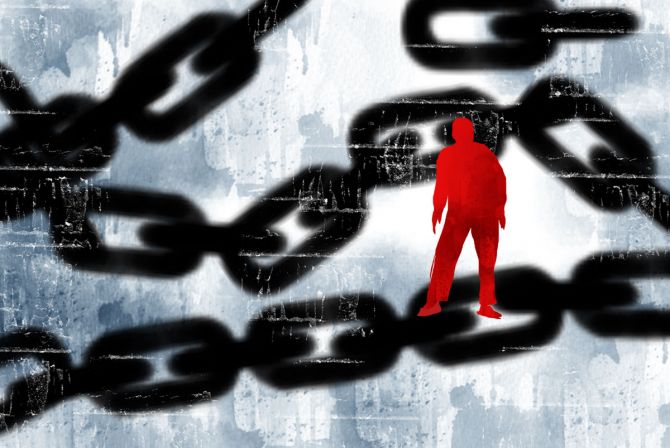
After the laws were passed in Parliament, Home Minister Amit A Shah said, the new criminal laws would provide justice unlike the old colonial laws...
The question is, what did the Union home minister mean by 'justice'?
The injustice meted out to innocent people under the last set of criminal laws was thus far attributed to the British colonial concept of justice.
Now that we have a set of laws that have been certified by the Union home minister as delivering Bharatiya justice, whatever people suffer under the Bharatiya criminal laws will be Bharatiya justice, and not colonial justice!
Arundhati Roy was charged under UAPA recently for something she said 12 years ago.
Under this law, can you go back and charge someone for what the person said long ago?
The question of application of the new laws may not make much of a difference in the case of Ms Arundhati Roy as the old and new laws both unconstitutionally seek to criminalise her mere expression of a private individual opinion as a writer with no evidence that it has in and by itself had for over a decade any provable direct impact on creating violence or secessionist activities.
The offensive substance of Section 153A of the IPC under which she is said to be charged ("promoting enmity between different groups on grounds of religion, race, place of birth, residence, language, etc., and doing acts prejudicial to maintenance of harmony") is continued in Sections 190 and 195 of the new Bharatiya Nyaya Sanhita.
The offensive substance of Section 153B IPC with which she is said to be charged ("imputations, assertions prejudicial to national-integration") is in substance continued as Section 150 of the new Bharatiya Nyaya Sanhita ("encouraging feeling of separatist activities").
The offensive substance of Section 505 which deals with intentional insult with intent to provoke a breach of the peace is continued in substance in Section 194 of the new Bharatiya Nyaya Sanhita.
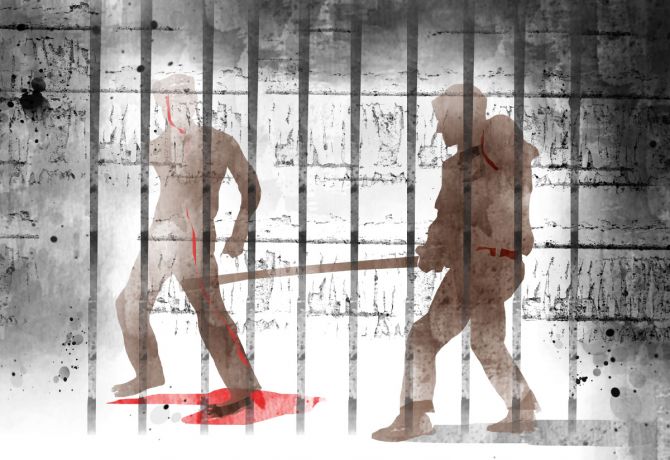
Will these laws give more power to the police?
Yes, they will. For example, the police can now decide whether to charge you for terrorism under the new criminal laws or under UAPA which have near identical provisions on terrorism.
Another example is that even a regular policeman on the street has been given power to detain anyone for up to 24 hours for not obeying any direction given by him.
Imagine the amount of corruption and blackmailing this can create at the lowest level.
Police officers who support a police raj will have reason to celebrate the new Bharatiya laws because it is taking us further back to police raj.
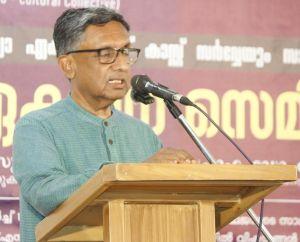 IMAGE: G Mohan Gopal
IMAGE: G Mohan GopalWould you say the biggest danger these laws pose is silencing people?
Yes indeed. When people are silenced, democracy dies.
The new Bharatiya laws will silence people in three crucial ways.
One, people will be silenced by suppressing political mobilisation and political activity against the ruling party.
Even mere thinking about, reading and keeping material not liked by the ruling party will be suppressed.
Second, people will be silenced by fear of being thrown into jail arbitrarily.
Third, independent minds will be silenced in academia, media and civil society.
The whole purpose of the new Bharatiya laws is to replace democracy with a theocracy through a type of criminal statute one would typically see in a totalitarian, authoritarian government in many countries.


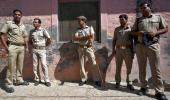
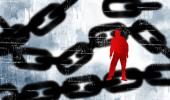







 © 2025
© 2025